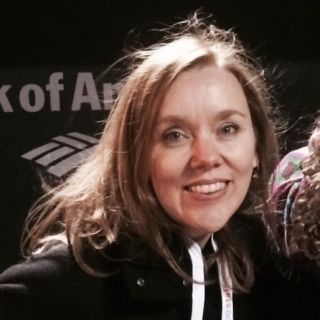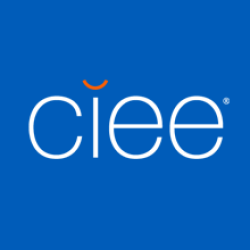Q&A with Kate Moore

By Alexandra Wood
Kate Moore is Vice President of the Academic Internship Council, a nonprofit within the CIEE family that partners with more than 50 universities throughout the world to develop and deliver their customized experiential programming in 15 global cities. She holds a doctorate in higher education management from University of Pennsylvania, a masters in Nonprofit Management from Eastern University, and a bachelor's in International Studies from American University. Originally from Nebraska, Kate visits baseball spring training in Phoenix each March, and flew the equivalent of seven trips around the world in 2018.
How did you get started working in the experiential learning space?
My first job in experiential learning was processing bills from vendors after 4,000 high school students and their teachers attended educational programming during a presidential inauguration week in Washington, D.C. This was a temp job via Close Up Foundation, the organization through which I first experienced place-based learning from my own high school in Superior, Nebraska. My roles within Close Up evolved to include managing the department that oversaw speakers, site visits, scheduling, and congressional meetings as well as leading the initiative to build programs via Elderhostel (now Road Scholar) and developing partnerships with governmental agencies and private industry to support experiential learning. I have always been motivated by the individual learning experience and energized by making connections that reach beyond the classroom or textbook.
Were you ever an intern?
Early and often! I chose university in D.C. because of the internship opportunities and my experiences there included working on the Europe Desk at the US Chamber of Commerce as a freshman (my first publishing credit!) as well as interning within public relations, law, politics, and government. Without calling out a particular location, I can definitely say that I found out what I did NOT want to do from internships! Of course, I also gained experience and developed a professional network as well as prepared myself for life after graduation.
What do you like best about finding internship placements for students?
Finding placements for students is hard work. Having a community of colleagues who do this work has been an unexpected and very meaningful reward. We, in fact, bring the field together through the Global Internship Conference to celebrate the work, share best practices and discuss emerging trends. In this field, we all need to be nimble and that leads to constant learning. One thing I especially love is discovering an industry that is new to me…such as golf course design in Boston (in winter!) or financial engineering throughout the globe (and launching that program during the 2008 financial crisis…)
How have student needs and priorities changed during your time in this field?
Students – and their parents and their future employers – are looking for experiences that will prepare them for life after graduation. Given the volume of information, range of choice, and pace of change there is more need than ever to contextualize experiences. Students are seeking authenticity and relevance. This has always been true to some extent, but has heightened in the past decade.
How do you see the experiential learning and international internship field evolving?
International education has evolved beyond American undergrads going to Europe for their junior year to include students from across the globe having experiences throughout the world. Those experiences include a greater range of areas of study, shorter programs, and a more diverse student cohort.
We have seen an increased emphasis on the international student experience, especially beyond the classroom. Programs linking coursework to internship pull from trends related to skill-based credentials and experience-driven badging. I am particularly excited by the extent to which our conversation has become truly global as we learn from colleagues, students, and employers beyond the U.S. and throughout the globe.
